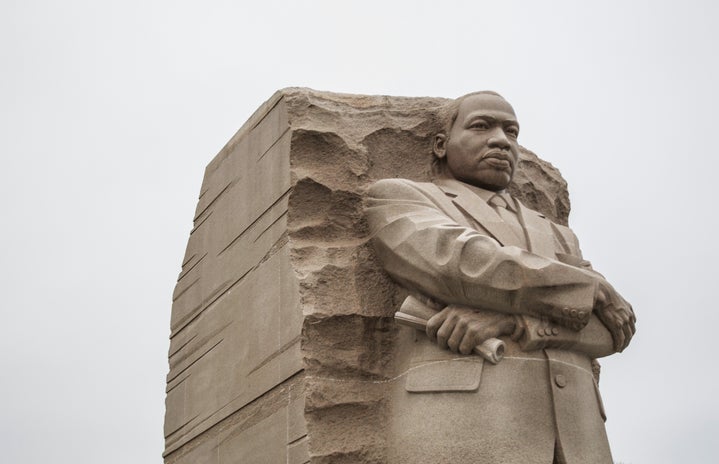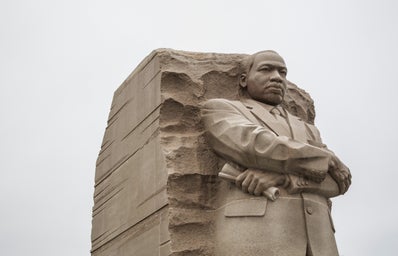This Black History month we often honor the Black men and women who have fought against racism and discrimination in the United States of America. We often go back to the struggles and triumphs of three Black male heroes: James Baldwin, Martin Luther King Junior, and Malcolm X. But very little is known about their mothers. That is why scholar Anna Malaika Tubbs celebrates Black motherhood by telling the story of the three women who raised and shaped some of America’s most pivotal heroes in The Three Mothers. So in this article, I will be talking about Louise Little, Alberta King, and Berdis Baldwin
dehumanization
Black women are part of a group that has historically been dehumanized; their basic rights are not granted or respected, their agency is taken away, they are objectified through language and actions, violence is used against them, and they are expected to remain silent despite the circumstances. All three mothers experience this throughout their lives. At every stage of each mothers’ life, they continue to resist as they pushed against discrimination, and refused to acquiesce to the notion of their supposed inferiority. These are their stories.
denying their existence
The same year that Harriet Tubman passed away, Woodrow Wilson took office as president. Under his administration, the country witnessed unprecedented segregation in public offices, interracial marriage became a felony, and there was an increasing denial of Black existence. A time period of growing threats was also a time period defined by evolution. The next decade of these mothers’ lives saw unprecedented change as every corner in the United States, people could feel the growing volumes of calls for Black freedom.
Louise grew up with her extended family around her, mainly her female relatives like her grandmother, Mary Jane, and aunt, Gertrude. Her grandmother was extremely resourceful and valued caring for her family as a single woman. Her aunt was a skilled seamstress who made money on her own. While we wish there was more information about these incredible women, we do see that Louise learned to be resilient from her mother, learned to be creative and clever from her grandmother, and learned a trade and self-determination from her aunt. Her home life was also paired with the access to education she had at her local school. She was reminded through her family and teachers of her worth and ability to sustain herself. She was a multilingual cosmopolitan scholar who was aware of her excellence.
Alberta was raised by two devoted parents, rooted in their religious faith and committed to the fulfillment of human rights for all. Her parents taught her to be an activist. In the midst of racial violence, she was raised with examples of resistance in the name of humanity and love; she watched her father start the Atlanta chapter of the NAACP and boycott racist businesses. Alberta, like Louise, was a brilliant student who paired her love of music and reading with an extensive knowledge of art and a passion to become a teacher. She wanted to share her privileges with as many other peoples as she could, and she believed teaching was the best way to do so.
Berdis was surrounded by media representation meant to disparage Black children. She found herself standing in contrast with her surroundings of such racist representations through her place of schooling. She believed in God and was strengthened by her faith.
their sons
Malcolm’s childhood was rich with education. However, he was also a bit of a troublemaker and a rebellious type. As a child, he would cry until he got what he wanted. “So, early in life I learned that if you want something, you had better make some noise.” Louise was especially strict with Malcolm because he was so much like her. She knew firsthand how dangerous it could be for someone so strong-willed, so she did her best to steer his energy and intelligence in the right direction.
As a child, Martin would often play with the white children, but at a certain age this was not allowed and Martin felt great pain not being able to see his friends. Martin went to his mother with these concerns and would continue to do so when we grew older. Alberta knew her children were capable of anything they set their minds to, and she encouraged them to believe in themselves in the same way.
Jimmy was forced to grow up faster than other children since he was the eldest and had to help his mother make ends meet. He was born into these circumstances, but he balanced these pressures by keeping an eye on his education. His mother, Berdis, made sure of this. They both confronted every trial through reading and writing. Berdis saw a special drive in her son for writing — a sense that he had to write, which was exactly what he did.
the Three mothers
This book is a must-read for all of us observing and celebrating Black stories this month. We often hear about these three amazing men, but we must also know the stories behind the women who raised them, who planted the seed of revolution in them, and ultimately, were the starting point for the changes we see today. They are our heroes.


